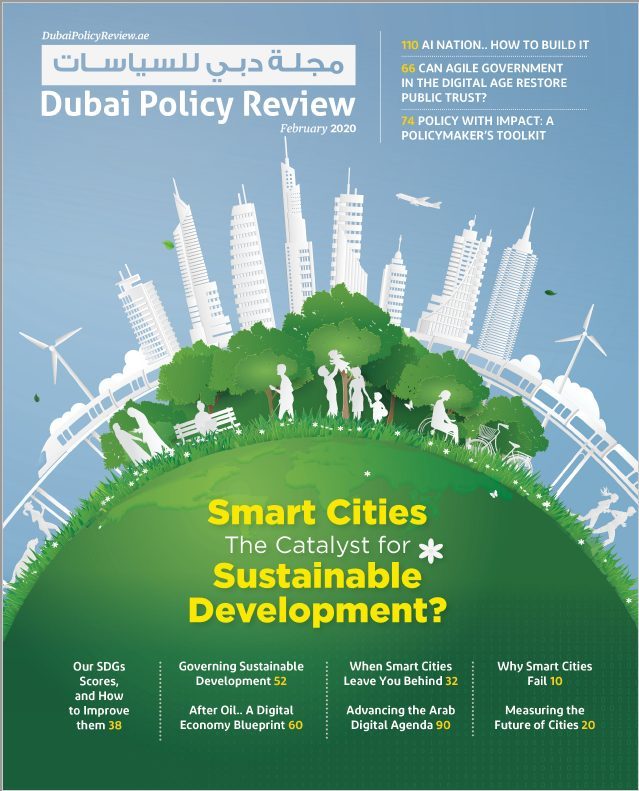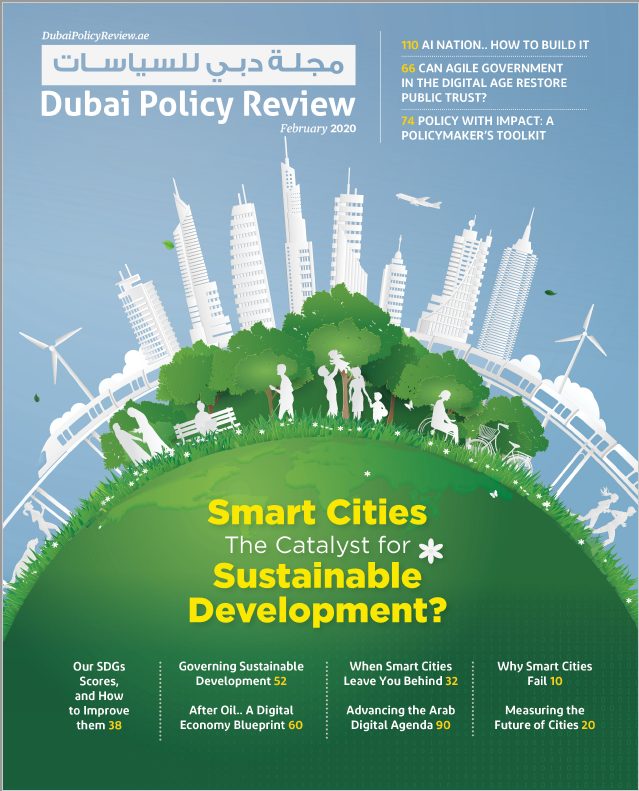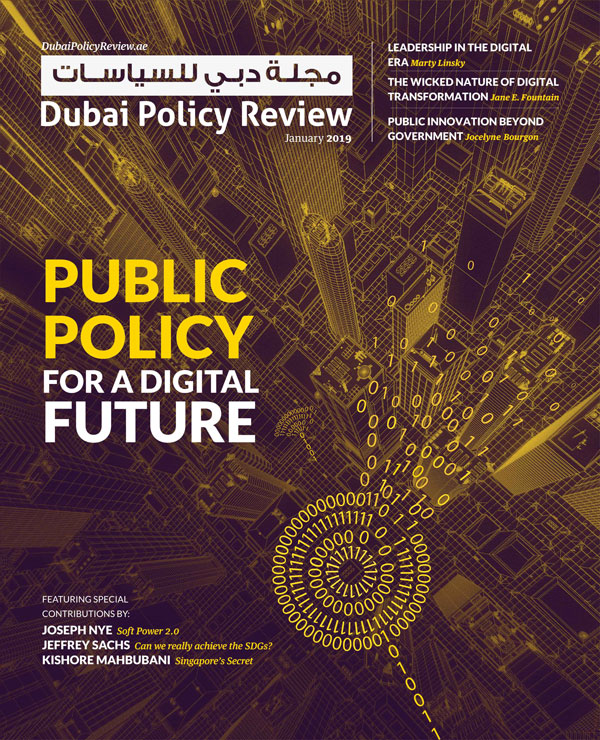
Fadi Salem
Can smart cities help us achieve true sustainable development? With merely a decade to go to deliver on the 2030 agenda and the universal Sustainable Development Goals (SDGs), digital development is seen as a forceful catalyst that can help governments close developmental gaps and accelerate progress. In particular, smart and sustainable cities are becoming microcosms of policy and governance transformation challenges we face in our drive towards achieving the SDGs. They are the juncture where the governance issues we face in addressing developmental goals intersect with the promises—and challenges—of the digital future. Additionally, they are also the arena where policy innovations and governance dilemmas emerge and interact.
How can Arab governments navigate these major double-edged transformations? More importantly, how can they do so rapidly, but safely; with agility, but also with inclusiveness that leaves no one behind? In other words, how can we deliver on the promises of smart cities, ‘digital by default’ governance, data-driven public policy, knowledge-based digital economies and artificial intelligence adoption across the governance apparatus? How can we succeed in reaching these grand goals sustainably, without causing harm to society, damaging decades-old economic models, destroying established safety nets, infringing on personal rights or causing social unrest? What types of policy instruments do we need? Which public administration tools would suit the region’s context? What governance structures would help achieve local, as well as global, objectives? Finally, what combination of skillsets and capabilities do governments need to respond to challenges faced by their populations and not others?
A year ago, the Dubai Policy Review was launched as a world-leading thought-leadership journal with the mandate to deliver evidence-backed policy recommendations and practical actionable advice to senior policymakers and government practitioners across the government ecosystem. This edition of the DPR extends the theme of "public policy for a digital future" presented in the inaugural edition. It goes in-depth to analyze the link between smart cities and digital development as catalysts for a sustainable future.
As you read through the thought-provoking contributions in this edition, the link between sustainable development on the one hand, and smart cities and digital development on the other, becomes clear. When smart cities fail, they create expensive lost opportunities for development, and may lead to urban and social decay (Pardo). However, assessing if they are succeeding and measuring their performance towards the future is highly complex and can lead to different pathways (Lanvin). Moreover, cities will soon host the majority of the world’s population. If we are to really "leave no one behind", then having cities that grow ‘smart’, but become less accessible, will be a step backwards for many of the sustainable development goals (Pineda and Poitier). Meanwhile, in the Arab region, we now know which of the SDGs we are lagging behind on, what local data to gather, how to prioritize and the urgency of regional coordination (Luomi). We have global lessons on the novel governance structures and innovative policy approaches we can establish (Fyson, Lindberg and Morales, OECD). Moving ahead towards a sustainable future will also require painful economic transformations and trade-offs (Arezki, World Bank). These command adopting agile governance approaches and taking painful steps to respond to the pressing social changes of the digital age (Santiso, CAF Development Bank). They require comprehensive policy instruments that inform, measure and drive impact and value in complex policymaking ecosystems (Andrews and Samji). However, given the monumental challenges the region faces, governments cannot lead this transformation alone. They need to empower societal leaders and collaborate with change-makers willing to drive large-scale developmental interventions (Jalbout). At a strategic level, governments in the region need to apply a holistic agenda for development that embraces digital transformation at the core (El-Sherbiny, UN ESCWA). A key part of which will rely on building a future-facing digital economy that adapts to the knowledge economy era (Al-Khouri). However, to achieve these ambitious developmental goals, nations have to find their own formulas for adopting novel transformations, such as data-driven and AI-enabled digital government (AlDhaheri).
The path leading the region to successfully achieving the SDGs is not straightforward. It is filled with major obstacles and the roadmap that can guide leaders through it is not yet clear. To help policymakers through this journey, the carefully curated set of articles in this edition of the DPR provides rich datasets, policy recommendations, tools, action plans, advice and warnings. These are presented in each of the insightful contributions, providing a wealth of policy options for government leaders in the region.
The philosophy of the Dubai Policy Review is to generate value and advance progress towards better governance, higher quality of public administration, and policies that drive real impact. Ultimately, we hope that the thought-leading contributions presented here, will inform and support leaders in governing development responsively, responsibly and sustainably towards a better future in the region.
Fadi Salem
Editor-in-Chief








You must be logged in to post a comment.